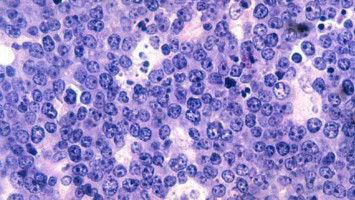
A team of researchers from The Tisch Cancer Institute at the Icahn School of Medicine at Mount Sinai has successfully treated a rare and aggressive T-cell lymphoma that developed after CAR T-cell therapy for multiple myeloma, marking a first in the field of hematologic cancer research. The findings were published in the August 21 issue of the New England Journal of Medicine.
CAR T therapy, which reprograms a patient’s immune cells to attack cancer, has shown transformative results in treating multiple myeloma. However, in rare cases, serious complications such as secondary cancers can occur. In this groundbreaking case, a 51-year-old patient went into complete remission from myeloma following B-cell maturation antigen CAR T treatment but subsequently developed rapidly progressing T cell lymphoma in his skin, blood, and bone marrow.
Using advanced genetic and immunologic screening techniques developed at Mount Sinai, the research team identified a combination of compounds approved by the Food and Drug Administration that were capable of targeting the lymphoma. Notably, they discovered that the antibody drug anti-CCR4 (never before used in this context) was effective in eliminating the patient’s cancer. Today, the patient remains in remission from both multiple myeloma and lymphoma.
“This is the first reported case of successfully using targeted therapy to treat a CAR positive T-cell lymphoma,” said senior author Samir Parekh, MD, Director of the Centre of Excellence for Multiple Myeloma at The Tisch Cancer Institute at the Icahn School of Medicine at Mount Sinai. “It highlights the importance of monitoring for secondary cancers and leveraging precision medicine to respond quickly when they emerge.”
Mount Sinai researchers are continuing to investigate the biology of these rare side effects and developing safer and more durable CAR T treatments for patients with multiple myeloma.
Source: The Mount Sinai Hospital / Mount Sinai School of Medicine